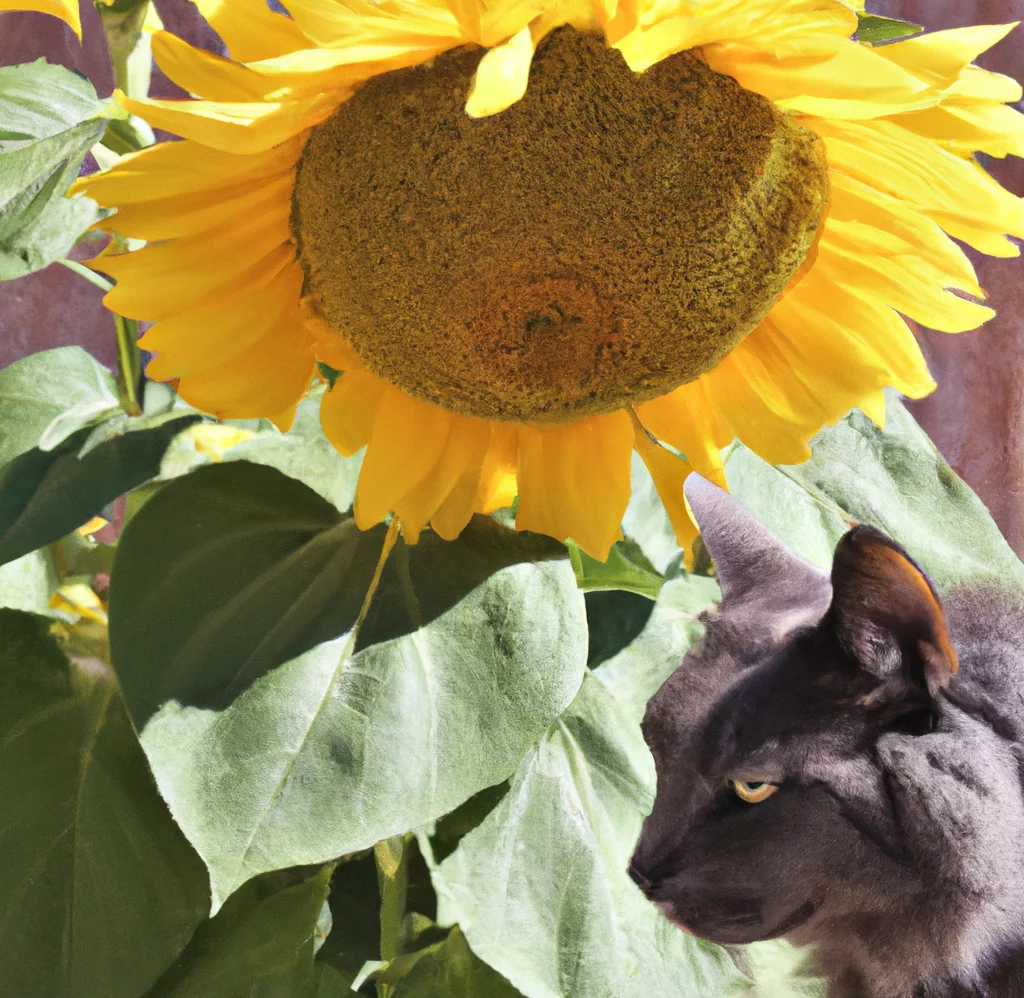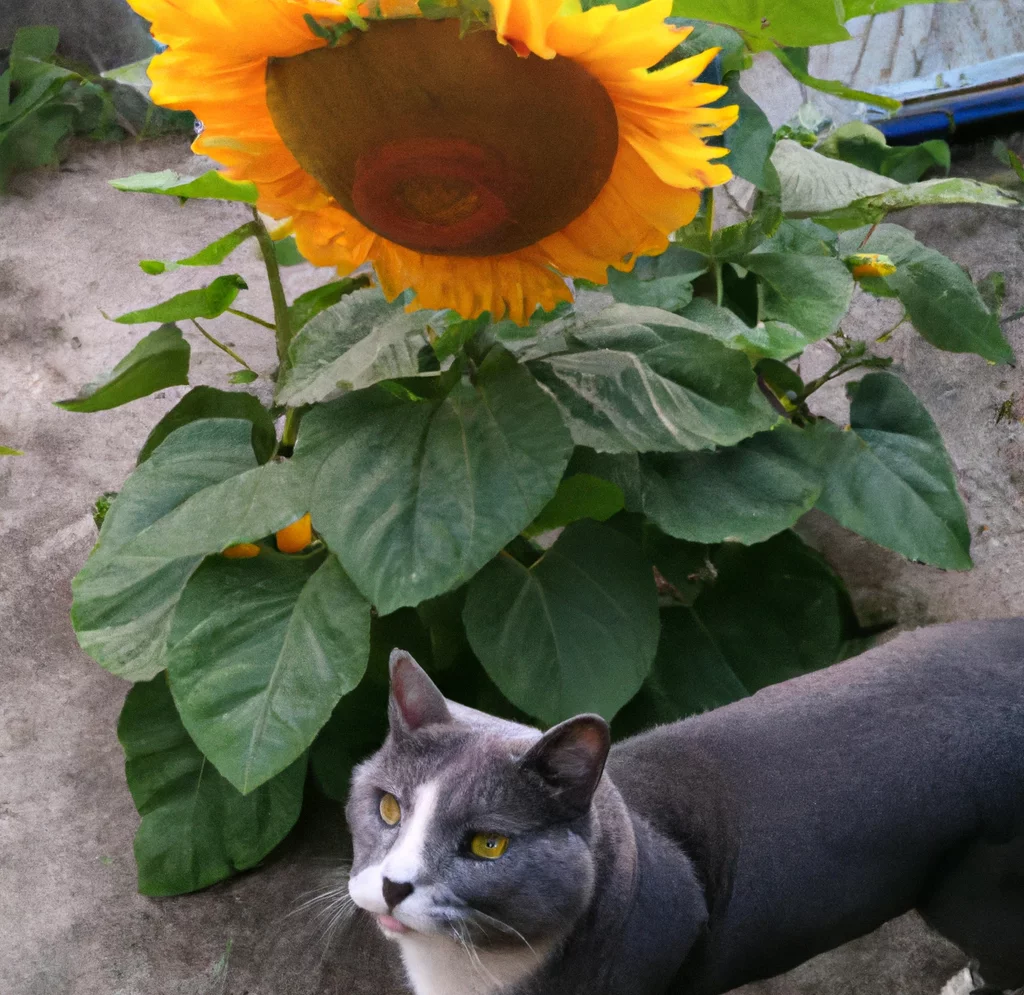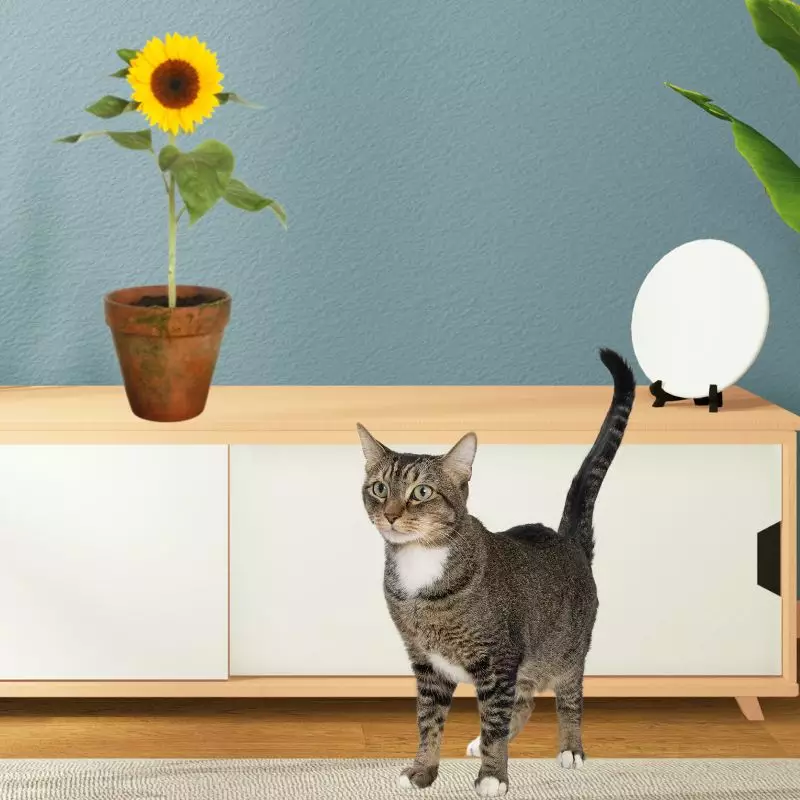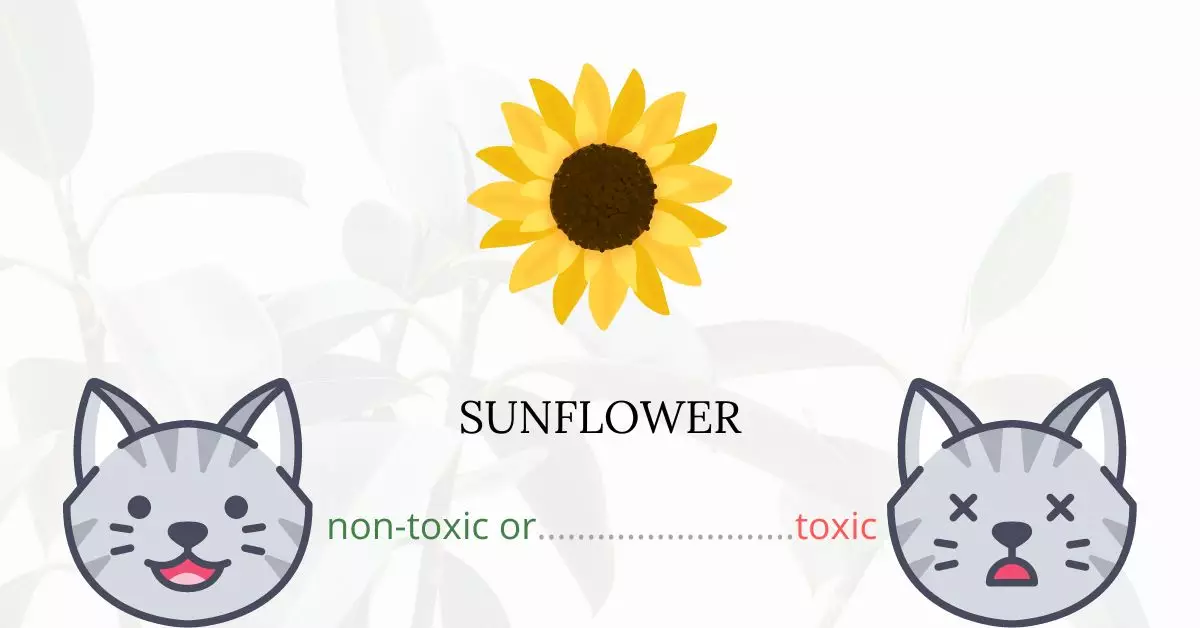Sunflowers are not toxic to cats.
In collaboration with a team of experienced DVMs (doctors of veterinary medicine), we have researched and confirmed that sunflowers are classified as a non-toxic plant for felines by the Poison Control Center of the ASPCA (American Society for the Prevention of Cruelty to Animals). Through the contributions of these veterinary experts and extensive research on high-authority websites such as ASPCA and PetMD, we are committed to providing you with accurate and up-to-date information on the potential risks associated with various plants and their effects on cats.
As such, sunflowers are safe to grow or have inside your home, even with the presence of your feline companions.
Can Cats Eat Sunflower?

Although cats are primarily carnivores, they do occasionally consume small amounts of plants for additional nutrients like fiber.
Since sunflowers are non-toxic, your cats will not experience illnesses if they happen to ingest a few sunflower petals or leaves. However, too much eating of this plant may cause cats to have indigestion. This may cause your cat to feel sick or throw up, which could result in minor but uncomfortable health issues.
The seeds of the sunflower are not poisonous to cats, like the rest of the plant. Although the seeds are not poisonous, they are also not the ideal cat treat.
It’s challenging to bite into sunflower seeds that are still in their tough shells. These seeds are less likely to cause a tooth chip or choking hazard when shelled.
Sunflower seeds that have been shelled are frequently prepared with seasonings or other additives. The seeds themselves are not poisonous, but these additional flavorings might be. It is best to refrain from giving your cat any kind of sunflower seed.
Sunflower oil won’t harm your cat if it is consumed in moderation and as part of a balanced diet. It’s not really necessary either, though. These vegetable-based fats are not suitable for your feline companions.
While sunflower oil is not really an issue when consumed in moderation, it’s best to totally avoid it for cats. This oil can add more extra calories to your cat’s diet and risk excessive weight gain.
What is Sunflower?

There are about 70 species of sunflowers or helianthus species. These annual and perennial flowering plants belong to the Asteraceae family of plants. They are endemic to North America and Central America, with the exception of three South American species.
Sunflowers are typically tall annual or perennial plants that can reach heights of 300 centimeters or more. Each flower is a disc composed of tiny flowers forming a larger false flower that attracts pollinators better.
Helianthus plant heads adjust during the day to face the sunlight before blooming. This movement is known as heliotropism, and it occurs for a short period of time when flower buds form and young Helianthus heads track the Sun. In preparation for the sunrise, the flower heads reorient themselves at night and face East.
Keeping Cats Away From Sunflower

To prevent your cats from damaging your sunflowers at home, make sure to place them in a room or shelf that is inaccessible to them. Creating a separate space for your plants will help to lessen the chance of your cat encountering them.
You can also use materials that cats dislike such as sticky tape and aluminum foil. Wrap these items around your plant pots to prevent them from coming near your plants. You can also lay the aluminum foil on your garden area near the plants to drive them away.
Plants to Avoid For Your Cats
If you are a cat owner and unsure if the plants growing in your yard are harmful to your cats, check out this list of toxic plants for cats. You can also check our list of non-toxic plants for cats.





